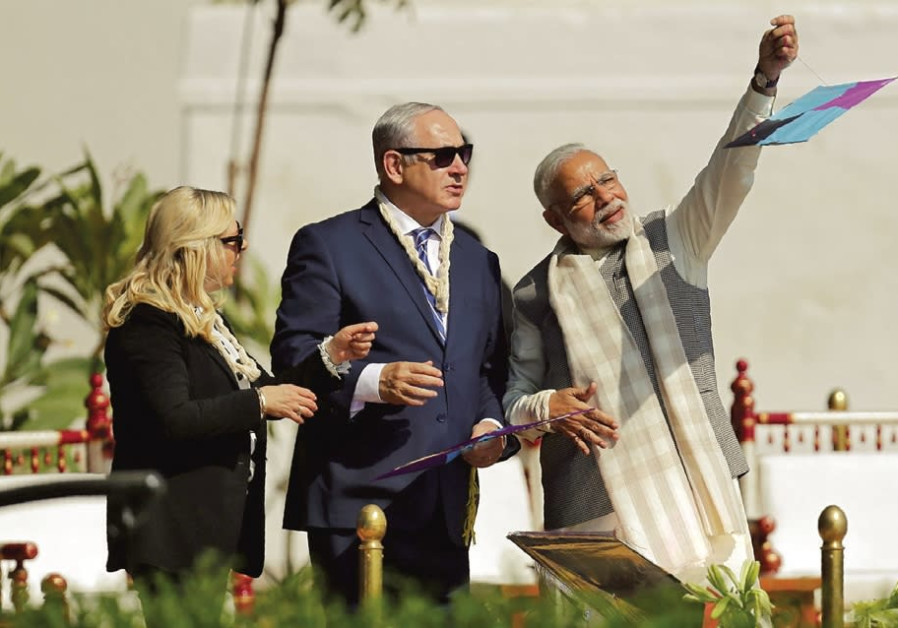The Stockholm International Peace Research Institute ranked Israel as the fifth largest arms supplier in the world, with $1.26b. of sales last year, following the US, Russia, France and Germany.

Arms sales do not ensure support in international forums, as the top three markets for Israeli military equipment – India, Vietnam and Azerbaijan – almost always vote against Israel in the United Nations.
According to the Stockholm International Peace Research Institute’s updated data, India is by far Israel’s largest weapons market, having bought $715 million worth of weaponry in 2017, down slightly from the $767m. it bought in 2016. This represents a whopping 650% increase in arms sales to India over the last decade.
Israel is India’s second largest source of arms, lagging far behind Russia, which sold New Delhi $1.9 billion’s worth, but significantly ahead of both France and the US.
According to the database, Vietnam is Israel’s second largest customer, having purchased $142m. in arms in 2017, making Israel its second largest arms supplier, after Russia.
Azerbaijan – a Muslim country on Iran’s border – is the third largest weapons market for Israel, having bought $137m. worth in 2017, a steep decline, however, from the $248m. it bought in 2016. Israel is Azerbaijan’s largest arms supplier.
While India at times abstains on key Israel-related votes in the UN, Vietnam and Azerbaijan can be counted on always to vote against Jerusalem.
The institute ranked Israel as the fifth largest arms supplier in the world, with $1.26b. of sales last year, following the US, Russia, France and Germany.
The data place Israel in 18th place regarding the import of arms, having spent $528m. on arms last year, fully 97.5% of it imported from the US, and the rest coming from Germany. In the past decade Israel has only imported arms from the US, Germany, Italy and Canada.
According to the SIPRI data, in 2017 Israel sold $11m. in arms – Dvora patrol boats – to Myanmar. Israel came under fire last year for arms sales to that regime, accused of carrying out ethnic cleansing. Jerusalem’s sales represented 6.5% of Myanmar’s arms expenditures in 2017, with China and Russia making up the bulk of sales to that country, and Ukraine and the Netherlands selling more to Myanmar than does Israel.
Last year was the first year Israel sold arms to Myanmar since 2011.
Among other interesting trends culled from the data:
• For the second year in a row, Israel sold no military equipment to Turkey, a country that in 2009 bought some $320m. worth of Israeli weapons, making it far and away Israel’s top arms client that year.
• The Philippines emerged as a major market for Israel for the first time in 2017, having spent $21m. on radar and antitank systems.
• Weapons deals with two Asian countries, Singapore and South Korea, slipped precipitously last year, the SIPRI data said, with South Korea, which bought $52m. in military equipment in 2016, not making any purchases in 2017, and the amount sold to Singapore dropping from $43m. to $2m. last year.
• Italy is the fourth largest purchaser of Israeli arms, and the biggest customer in Europe, having spent $87m. in 2017 for Israeli airborne early warning and control systems.
• Israel sold $25m. worth of radar systems to Canada last year, the first time Israeli arms have been sold to Canada since 2009.
• Cyprus spent $23m. on an offshore patrol vessel for its coast guard to protect the Cypriot Exclusive Economic Zone and the Aphrodite gas field. The only other time that country has ever bought military equipment from Israel was a million dollar deal in 2002.
As reported by The Jerusalem Post
